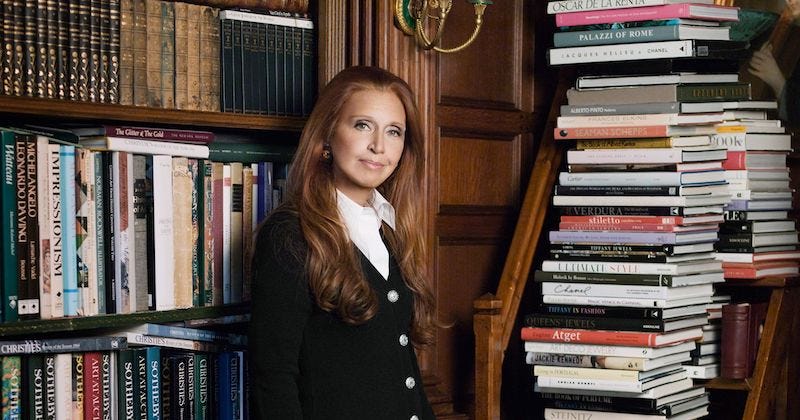The Profile Dossier: Danielle Steel, the Author Who Works 20 Hours a Day
“I have been a recluse for many years."
Novelist Danielle Steel could teach a masterclass on productivity.
She’s written more than 190 books, works 20 hours a day, and holds the Guinness record for most consecutive weeks on the New York Times best-seller list. Oh, and she has nine kids.
When she’s stuck, she pushes through and just keeps working. She works until she’s so tired she could fall asleep on the floor. “I keep working. The more you shy away from the material, the worse it gets,” she says. “You're better off pushing through and ending up with 30 dead pages you can correct later than just sitting there with nothing," she advises.
As I learned more about her story, however, I couldn’t help but wonder whether Steel’s dedication to her craft is admirable or … unhealthy. That’s because a part of me relates to Steel’s work on a personal level: My most productive and creative periods happen when there’s something dark or sad in my life. I write because writing serves as a refuge.
Right as I was thinking about this, I read a quote by Steel that echoes this exact sentiment. She says, "My work has always been sort of a saving grace. It's where I take refuge. Even when bad things have happened in my personal life, it's a constant. It's something solid I can escape into.”
In other words, writing acts as her refuge too — a safe place you go when you’re feeling out of control in other areas of your life. The more you write, the less time you have to worry. The less time you have to worry, the more work you can produce.
But then you have to confront the uncomfortable question: Are you successful or overwhelmed? Prolific or rushed? Happy or burnt out?
Steel’s early life offers some insights into her views about work. Steel grew up an only child alone with her dad, and she didn’t have much interaction with other kids. Mostly, she spent her time reading and studying, which put her way ahead of her peers. She was only 15 years old when she entered college.
She got married at age 17 and had her first daughter at age 19. “I don’t think I really had a chance to be a child, and I never thought a lot about having children of my own,” she says.
In total, she parented nine kids, saying that she embraced the “loving chaos” all around. But with the good also comes the bad. Steel has been through lots of pain and tragedy. “Crashed cars when they’re teenagers, illnesses you can’t foresee, constant risks, we lost a son which nearly killed us all but brought us even closer to each other,” she says.
The tragedy Steel is referring to dates back to 1997. Though news reports suggest her teenage son Nick died from an accidental drug overdose, Steel has said that he suffered from bipolar disorder and died by suicide on his fourth attempt. She wrote a book in his honor called, His Bright Light: The Story of Nick Traina.
“Nothing makes me happier than a house full of kids. And when they’re gone now, it is mournful and a terrible void in my life,” she says.
That void, in large, has been filled by her first love: Writing. She’s been writing hit after hit with a regimen so disciplined that she makes other professional authors look like amateurs.
"When I was first starting out, I had the same agent as Agatha Christie. I was about 19 years old and she was in her nineties,” she says. “I met her once, and I remember she said, 'I want to die face-first in my typewriter.' And I feel that way. I mean, I want to go on forever, just writing.”
Here’s what we can learn from the best-selling author whose lack of balance has propelled her into a life of success. But that success, as we’ll see, is a double-edged sword.
✨ The rest of this newsletter is only available for premium members of The Profile. Their support makes this work possible. If you’re not already a premium member, consider upgrading your subscription below for access to the full Profile Dossier. ✨



